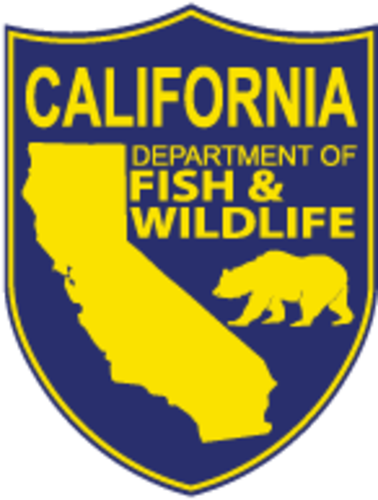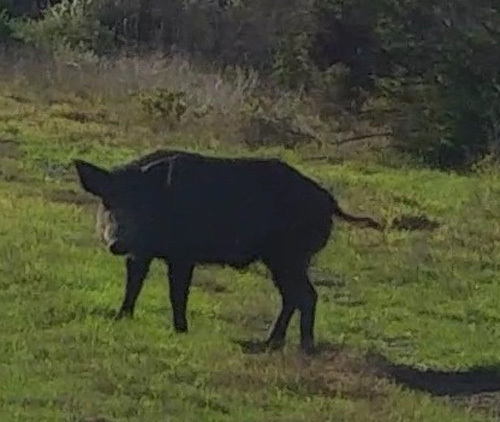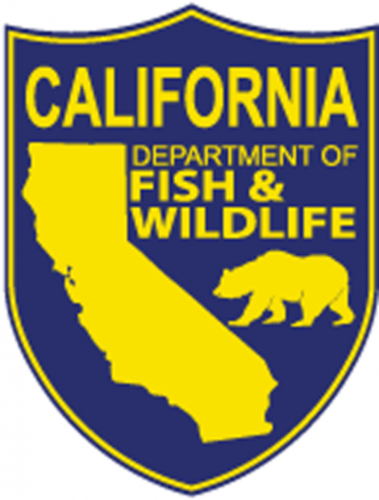Utah Fish Report
Fish Report for 1-13-2016
Fish Report for 1-13-2016
CDFW Awards $31.4 Million for Watershed

by California Department of Fish & Wildlife
1-13-2016
Website
The California Department of Fish and Wildlife today announced the selection of 24 projects that will receive funding from its Water Quality, Supply and Infrastructure Improvement Act of 2014 (Proposition 1) Restoration Grant Programs.
The grants, which total $31.4 million, are CDFW’s first distribution of funds through these programs. They include approximately $24.6 million awarded through the Watershed Restoration Grant Program to projects of statewide importance outside of the Sacramento-San Joaquin Delta; and approximately $6.8 million awarded through the Delta Water Quality and Ecosystem Restoration Grant Program for projects that benefit the Sacramento-San Joaquin Delta specifically.
In response to this first solicitation, announced last August, CDFW received 190 proposals requesting a total of $218 million in funding. All proposals underwent an initial administrative review, and those that passed were evaluated through a technical review process that included reviews by CDFW scientists, as well as experts from other agencies and academia.
The 24 approved projects will further the objectives of the California Water Action Plan, including establishing more reliable water supplies, restoring important species and habitat, and creating a more resilient and sustainably managed water resources system (e.g., water supply, water quality, flood protection and habitat) that can better withstand inevitable and unforeseen pressures in the coming decades.
“These projects achieve the spirit and intent of Proposition 1 to protect and restore important ecosystems around the state,” CDFW Director Charlton H. Bonham said. “Investing in these projects is exciting. These projects prove we can conserve California’s natural resources, while also contributing to other critical statewide needs, such as enhancing water supply reliability.”
Californians overwhelmingly approved Proposition 1 in November 2014. CDFW received its first appropriation of funds for allocation July 2015. In a little over one year from voter approval, and just more than six months from legislative appropriations, CDFW is awarding these first grants with Proposition 1 funds.
Projects approved for funding through the Watershed Restoration Grant Program include:
• Reclamation District 2035/Woodland-Davis Clean Water Agency Joint Intake and Fish Screen ($8,128,621 to Reclamation District 2035);
• South Bay Salt Pond Restoration Project Phase 2: Ravenswood and Mt. View Ponds ($5,000,000 to California State Coastal Conservancy);
• San Joaquin River – Invasive Species Management and Job Creation Project ($1,497,843 to River Partners);
• San Joaquin River – Native Habitat Restoration and Species Enhancement at Dos Rios Ranch ($798,978 to River Partners);
• North Campus Open Space Coastal Wetland Restoration Project ($997,095 to Regents of University California, Santa Barbara);
• San Francisco Estuary Invasive Spartina Removal and Tidal Marsh Restoration Project ($3,000,000 to California State Coastal Conservancy);
• Tuolumne River Bobcat Flat Salmonid Habitat Restoration-Duck Slough Side Channel Restoration for Off-Channel Rearing Habitat ($453,618 to Tuolumne River Conservancy);
• Native Trout Preservation in the Santa Ana Watershed in Southern California ($44,093 to Riverside-Corona Resource Conservation District);
• Restoring Fish Migration Connectivity to the Salt River Coastal Watershed ($1,995,438 to Humboldt County Resource Conservation District);
• Grasslands Floodplain Restoration Project ($576,351 to American Rivers);
• Perazzo Meadows Restoration ($607,889 to Truckee River Watershed Council);
• San Gabriel Watershed Restoration Program ($65,000 to Upper San Gabriel Valley Municipal Water District);
• Sequoia National Forest Prioritized Meadows Restoration Project ($486,173 to Trout Unlimited); and
• Lower Putah Creek Watershed Restoration ($990,312 to Solano County Water Agency).
Projects approved for funding through the Delta Water Quality and Ecosystem Restoration Grant Program include:
• Reconstructing juvenile salmon growth, condition and Delta habitat use in the 2014-15 drought and beyond ($800,484 to Regents of the University of California, Davis, Center for Watershed Sciences);
• Drought-related high water temperature impacts survival of California salmonids through disease, increasing predation risk ($625,740 to Regents of the University of California, Davis, School of Veterinary Medicine);
• Hydrodynamic influences on the food webs of restoring tidal wetlands ($867,235 to Regents of the University of California, Davis, Center for Watershed Sciences);
• Rush Ranch Lower Spring Branch Creek and Suisun Hill Hollow Tidal Connections Project ($839,449 to Solano Land Trust);
• Mechanisms underlying the flow relationship of longfin smelt: I. Movement and feeding ($1,263,991 to San Francisco State University);
• The Effect of Drought on Delta Smelt Vital Rates ($678,275 to Regents of the University of California, Davis, Office of Research, Sponsored Programs);
• Yolo Bypass Westside Tributaries Flow Monitoring Project ($331,148 to Yolo County);
• Problems and Promise of Restoring Tidal Marsh to Benefit Native Fishes in the North Delta during Drought and Flood ($969,238 to Regents of the University of California, Davis, Center for Watershed Sciences);
• Yolo Bypass Wildlife Area Habitat and Drainage Improvement Project Permitting ($145,944 to Ducks Unlimited); and
• Knightsen Wetland Restoration and Flood Protection Project ($240,000 to East Contra Costa County Habitat Conservancy).
More information about CDFW’s Proposition 1 Restoration Grant Programs can be found at www.wildlife.ca.gov/grants. Funding for these projects comes from the Water Quality, Supply and Infrastructure Improvement Act 2014 (Proposition 1) bond funds, a portion of which are allocated annually through the California State Budget Act. More information about Proposition 1 can be found here.
The grants, which total $31.4 million, are CDFW’s first distribution of funds through these programs. They include approximately $24.6 million awarded through the Watershed Restoration Grant Program to projects of statewide importance outside of the Sacramento-San Joaquin Delta; and approximately $6.8 million awarded through the Delta Water Quality and Ecosystem Restoration Grant Program for projects that benefit the Sacramento-San Joaquin Delta specifically.
In response to this first solicitation, announced last August, CDFW received 190 proposals requesting a total of $218 million in funding. All proposals underwent an initial administrative review, and those that passed were evaluated through a technical review process that included reviews by CDFW scientists, as well as experts from other agencies and academia.
The 24 approved projects will further the objectives of the California Water Action Plan, including establishing more reliable water supplies, restoring important species and habitat, and creating a more resilient and sustainably managed water resources system (e.g., water supply, water quality, flood protection and habitat) that can better withstand inevitable and unforeseen pressures in the coming decades.
“These projects achieve the spirit and intent of Proposition 1 to protect and restore important ecosystems around the state,” CDFW Director Charlton H. Bonham said. “Investing in these projects is exciting. These projects prove we can conserve California’s natural resources, while also contributing to other critical statewide needs, such as enhancing water supply reliability.”
Californians overwhelmingly approved Proposition 1 in November 2014. CDFW received its first appropriation of funds for allocation July 2015. In a little over one year from voter approval, and just more than six months from legislative appropriations, CDFW is awarding these first grants with Proposition 1 funds.
Projects approved for funding through the Watershed Restoration Grant Program include:
• Reclamation District 2035/Woodland-Davis Clean Water Agency Joint Intake and Fish Screen ($8,128,621 to Reclamation District 2035);
• South Bay Salt Pond Restoration Project Phase 2: Ravenswood and Mt. View Ponds ($5,000,000 to California State Coastal Conservancy);
• San Joaquin River – Invasive Species Management and Job Creation Project ($1,497,843 to River Partners);
• San Joaquin River – Native Habitat Restoration and Species Enhancement at Dos Rios Ranch ($798,978 to River Partners);
• North Campus Open Space Coastal Wetland Restoration Project ($997,095 to Regents of University California, Santa Barbara);
• San Francisco Estuary Invasive Spartina Removal and Tidal Marsh Restoration Project ($3,000,000 to California State Coastal Conservancy);
• Tuolumne River Bobcat Flat Salmonid Habitat Restoration-Duck Slough Side Channel Restoration for Off-Channel Rearing Habitat ($453,618 to Tuolumne River Conservancy);
• Native Trout Preservation in the Santa Ana Watershed in Southern California ($44,093 to Riverside-Corona Resource Conservation District);
• Restoring Fish Migration Connectivity to the Salt River Coastal Watershed ($1,995,438 to Humboldt County Resource Conservation District);
• Grasslands Floodplain Restoration Project ($576,351 to American Rivers);
• Perazzo Meadows Restoration ($607,889 to Truckee River Watershed Council);
• San Gabriel Watershed Restoration Program ($65,000 to Upper San Gabriel Valley Municipal Water District);
• Sequoia National Forest Prioritized Meadows Restoration Project ($486,173 to Trout Unlimited); and
• Lower Putah Creek Watershed Restoration ($990,312 to Solano County Water Agency).
Projects approved for funding through the Delta Water Quality and Ecosystem Restoration Grant Program include:
• Reconstructing juvenile salmon growth, condition and Delta habitat use in the 2014-15 drought and beyond ($800,484 to Regents of the University of California, Davis, Center for Watershed Sciences);
• Drought-related high water temperature impacts survival of California salmonids through disease, increasing predation risk ($625,740 to Regents of the University of California, Davis, School of Veterinary Medicine);
• Hydrodynamic influences on the food webs of restoring tidal wetlands ($867,235 to Regents of the University of California, Davis, Center for Watershed Sciences);
• Rush Ranch Lower Spring Branch Creek and Suisun Hill Hollow Tidal Connections Project ($839,449 to Solano Land Trust);
• Mechanisms underlying the flow relationship of longfin smelt: I. Movement and feeding ($1,263,991 to San Francisco State University);
• The Effect of Drought on Delta Smelt Vital Rates ($678,275 to Regents of the University of California, Davis, Office of Research, Sponsored Programs);
• Yolo Bypass Westside Tributaries Flow Monitoring Project ($331,148 to Yolo County);
• Problems and Promise of Restoring Tidal Marsh to Benefit Native Fishes in the North Delta during Drought and Flood ($969,238 to Regents of the University of California, Davis, Center for Watershed Sciences);
• Yolo Bypass Wildlife Area Habitat and Drainage Improvement Project Permitting ($145,944 to Ducks Unlimited); and
• Knightsen Wetland Restoration and Flood Protection Project ($240,000 to East Contra Costa County Habitat Conservancy).
More information about CDFW’s Proposition 1 Restoration Grant Programs can be found at www.wildlife.ca.gov/grants. Funding for these projects comes from the Water Quality, Supply and Infrastructure Improvement Act 2014 (Proposition 1) bond funds, a portion of which are allocated annually through the California State Budget Act. More information about Proposition 1 can be found here.
More Reports
Grizzly Island Pig Hunt
Sacramento Delta
1-8-2016
The California Department of Fish and Wildlife (CDFW) will be holding limited-entry, permit-only hunts to control a small population of...... Read More
California Department of Fish & Wildlife Reports
for Thursday, January 7th, 2016
: Bad Behavior on a Waterfowl Wildlife Area
: What’s the limit on mudsuckers?

www.UtahFishReports.com © 2026. All Rights Reserved.
Website Hosting and Design provided by TECK.net
Website Hosting and Design provided by TECK.net